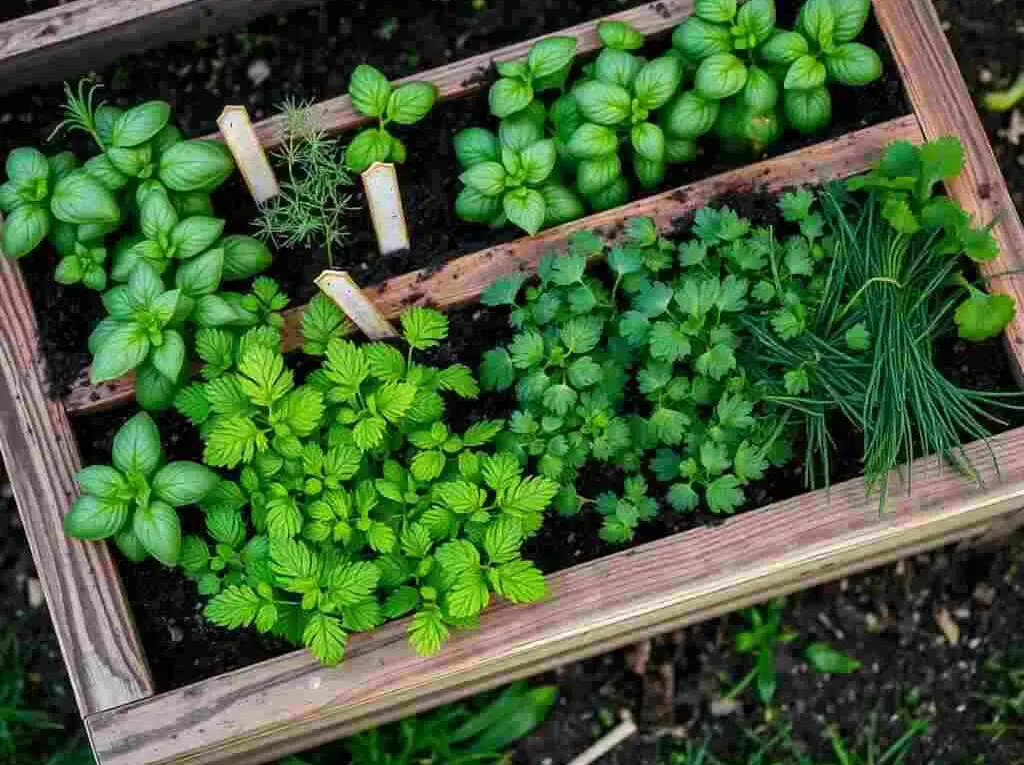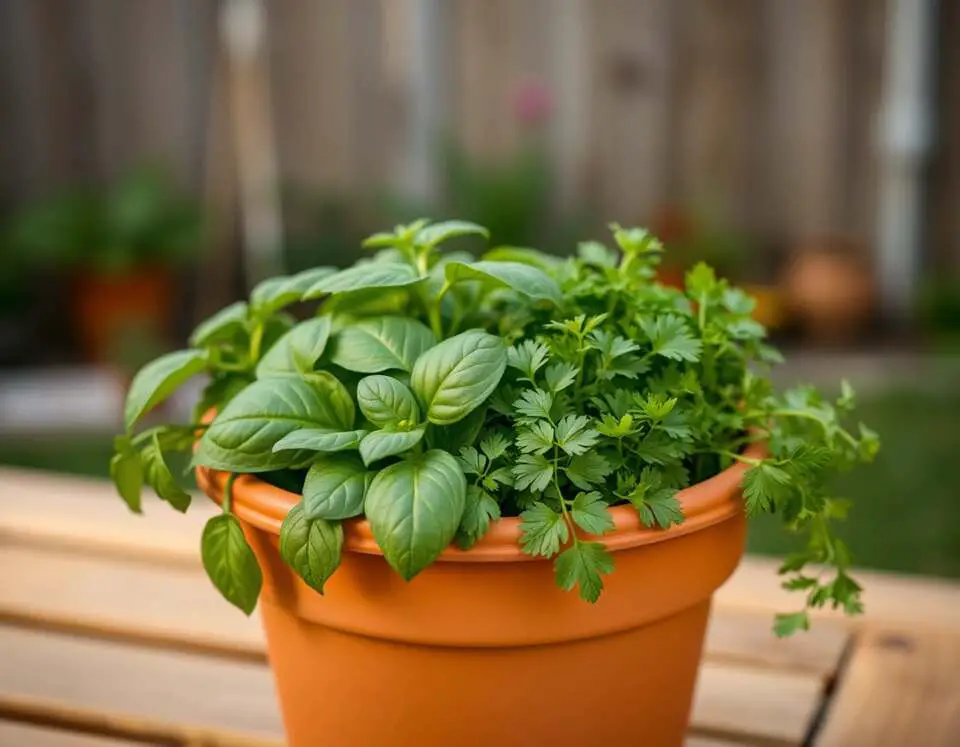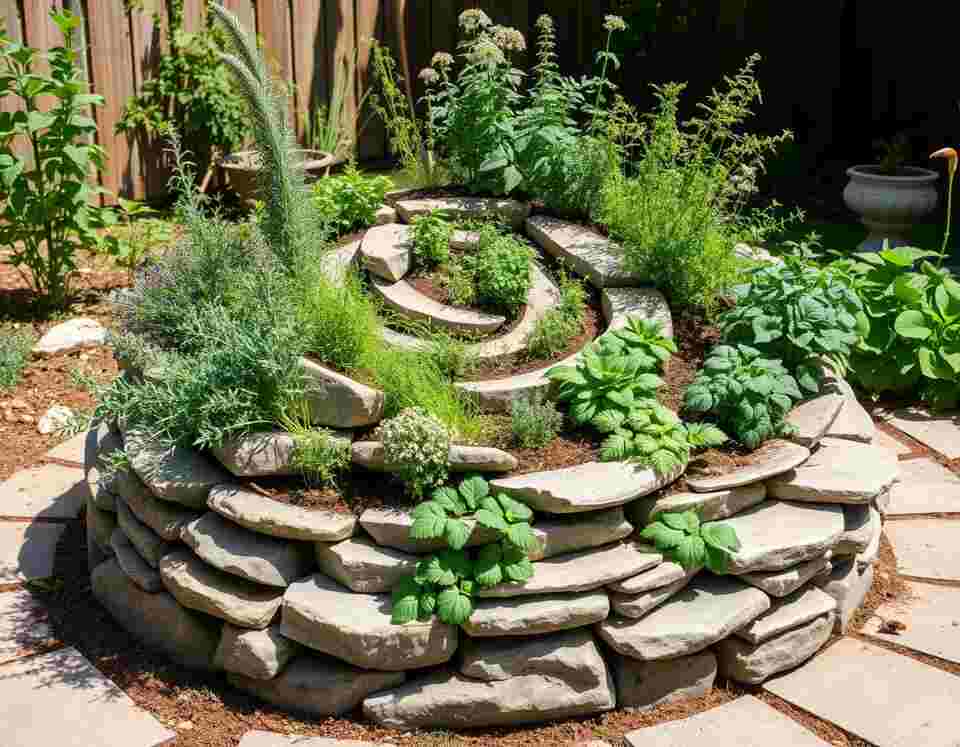What Herbs Can You Plant Together? Easy Pairing Tips!
So, you’ve got a patch of soil or a couple of pots, and you’re itching to start your herb garden. But here’s the thing, not all herbs get along. It’s like high school all over again, except with plants. You want to know which herbs can actually grow happily side by side and which ones are going to throw shade (or just steal all your water). Sound familiar?
I’ve spent a bunch of seasons planting herbs and learning the hard way which combos work and which don’t. Trust me, it’s worth knowing before you plant, or you might end up with a sad, scraggly mess instead of a thriving, fragrant garden. So, if you’ve ever wondered what herbs can you plant together? — and how to keep your green babies thriving, you’re in the right place. Ready? Let’s dig in! 🌿
Table of Contents
- 1 Why Does It Matter Which Herbs You Plant Together?
- 2 Classic Herb Pairings That Actually Work
- 3 Herbs That Don’t Get Along (Avoid These Combos)
- 4 Tips for Pairing Herbs Successfully
- 5 Companion Planting With Herbs: Bonus Perks
- 6 How I Learned the Hard Way
- 7 Wrapping It Up: Your Herb Garden Game Plan
- 8 Final Thoughts
- 9 Author
Why Does It Matter Which Herbs You Plant Together?
You might think herbs don’t care who their neighbors are. But in gardening, it’s actually a bit more complicated. Some herbs help each other grow by attracting beneficial insects or repelling pests. Others might compete for nutrients or even stunt each other’s growth.
Ever wondered why your mint takes over everything if you let it? Or why your dill never seems to get along with your carrots? There’s a reason behind that.
The right combinations can:
- Improve growth and flavor
- Keep pests away naturally (no chemicals!)
- Save space in your garden
And the wrong combos? Well, they can waste your time and money, and leave you feeling like your garden’s a total failure. So, pairing your herbs right? Yeah, it’s kind of a big deal.
Classic Herb Pairings That Actually Work
Let’s get to the good stuff: the combos that grow well together and help each other out. These pairs or groups play nice, so you can just sit back and enjoy the results.
Basil + Tomatoes + Oregano
If you’re growing tomatoes (because who isn’t?), basil is your new best friend. Basil doesn’t just smell amazing, it repels pesky bugs that love tomatoes, like aphids and whiteflies. Plus, planting oregano nearby helps keep fungal diseases away.
Why it works: Basil and oregano boost tomato growth by keeping bad insects and diseases off. Plus, basil tastes amazing with tomatoes, so you’re basically setting yourself up for pesto heaven. 🍅🌿
Rosemary + Sage + Thyme
These Mediterranean herbs love similar conditions, full sun, well-drained soil, and not too much water. They make great roommates because they have similar needs and don’t compete for space.
FYI: Rosemary can grow pretty big, so give it some room, or it’ll bully the thyme and sage. Think of it as that tall friend who takes up a lot of couch space. 😄
Chives + Carrots
Here’s a classic that’s easy to overlook. Chives help repel carrot flies, which means healthier carrots and less pest drama. Plus, chives don’t take up much space and have shallow roots, so they won’t fight with your carrots underground.
Mint (But Be Careful!)
Mint is like that overenthusiastic friend who just doesn’t know when to quit. It grows fast, spreads aggressively, and can take over your entire garden if you’re not careful.
Plant mint in pots or containers, and keep it separate from other herbs. But within its pot, it’s happy on its own or with herbs like chamomile. Just don’t let it wander! 😅
Herbs That Don’t Get Along (Avoid These Combos)
Now, for the not-so-great pairings. You want to keep these herbs apart or you’ll regret it.
Fennel + Everything Else
Fennel is kind of a loner. It releases chemicals that suppress the growth of most other plants, including herbs. This means if you plant fennel near your other herbs, they’ll struggle or just give up entirely.
My advice: Give fennel its own space or grow it in a pot.
Dill + Carrots or Parsley
Dill and carrots both attract the same pests. Planting them together just invites trouble. Same with parsley and dill, they don’t play well together in the garden.
Tips for Pairing Herbs Successfully
Just planting the right herbs together isn’t enough. You’ve got to think about space, water, and light needs too.
Space Them Out
Some herbs like rosemary and sage get big. Others like thyme and chives stay small. Don’t cram your garden like it’s Black Friday. Give those big growers room or they’ll steal resources from their smaller neighbors.
Match Water Needs
Parsley likes more water than rosemary. Planting them together is like putting a cactus next to a water lily, not gonna work well.
Think About Sunlight
Most herbs love full sun, but some, like mint and parsley, can tolerate some shade. If you have a shady spot, put those shade-tolerant herbs there.
Companion Planting With Herbs: Bonus Perks
Did you know some herbs can boost your garden beyond just their own growth? They can help protect other plants nearby or even improve soil quality.
Marigolds + Herbs
Plant marigolds near your herbs to keep away nematodes and other nasty pests. They’re like the bodyguards of the garden world.
Lavender + Most Herbs
Lavender smells fantastic and keeps moths and fleas at bay. Plus, it attracts pollinators, which is a win-win.
How I Learned the Hard Way
I once planted dill right next to my carrots because I thought, “Hey, they’re both garden herbs, they should get along.” Spoiler alert: my carrots turned out puny, and the dill was a bit underwhelming too. Lesson learned: some plants just don’t vibe.
On the flip side, I threw together a bunch of basil, oregano, and tomatoes, and my garden was practically bursting with life. I swear, the pesto from that harvest was worth the effort alone. 😋
Wrapping It Up: Your Herb Garden Game Plan
To keep it simple, here are the key takeaways:
- Pair herbs that support each other, like basil and tomatoes or chives and carrots.
- Avoid planting fennel near other herbs, it’s a garden bully.
- Consider each herb’s space, water, and light needs when grouping.
- Use containers for aggressive growers like mint.
- Remember, some herbs also protect your garden by repelling pests or attracting pollinators.
If you follow these tips, your herb garden will thank you with fresh flavors and fewer headaches.
Final Thoughts
Herb gardening isn’t rocket science, but it does need a little know-how to avoid planting disasters. If you treat your herbs like friends, pairing those who get along, your garden will thrive, and you’ll get to enjoy the rewards in your kitchen.
And hey, if you mess up, no worries. Gardening’s all about trial, error, and a little bit of dirt under your nails. Just don’t forget to keep it fun. After all, herbs are here to make your life tastier and your garden happier. 🌱😊
So, what combo are you planting this season? Got any funny herb fails or wins? I’m all ears!










